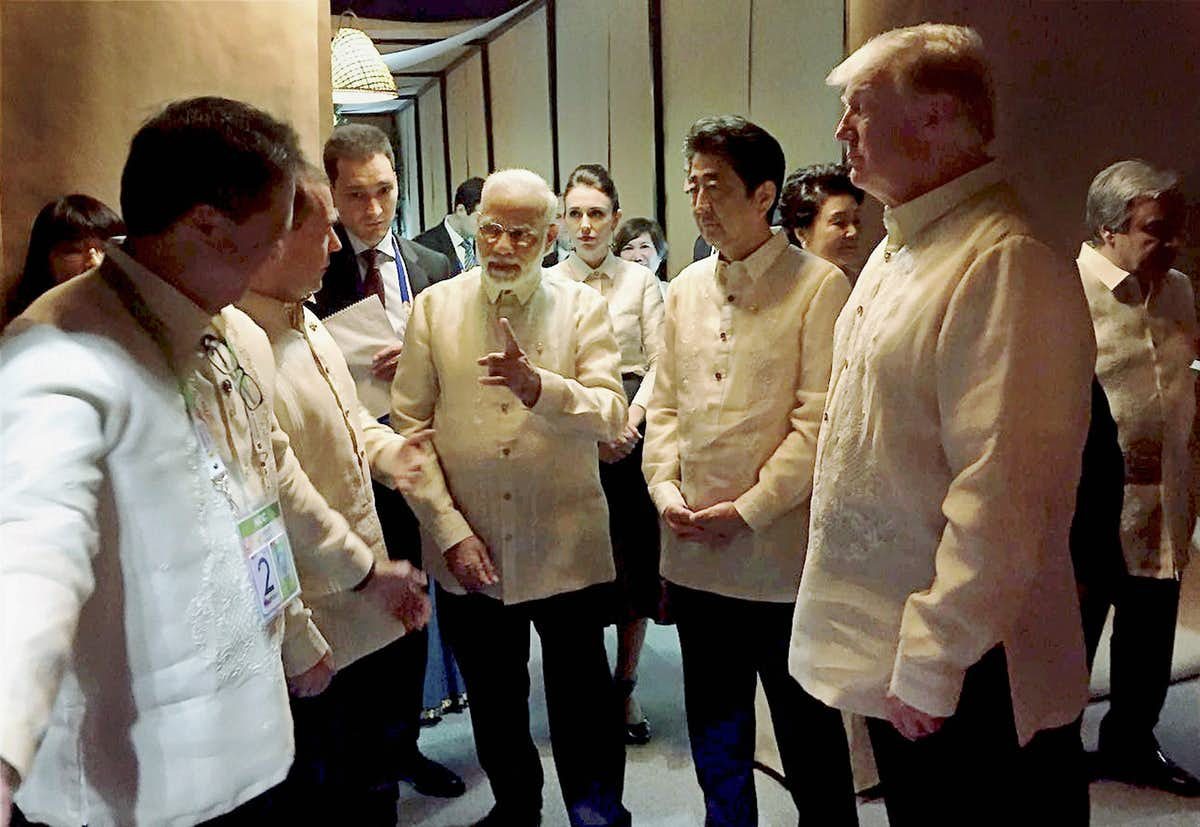
New Delhi: India, US, Japan and Australia have agreed on free, open, prosperous and inclusive Indo-Pacific region.
The meeting happened less than a month after the Japanese foreign minister Taro Kano stated that the consultations had already begun for a “top-level” dialogue between the four countries.
Officials from India’s Ministry of External Affairs, Australia’s Department of Foreign Affairs, Japan’s Ministry of Foreign Affairs and United States’ Department of State met in Manila on November 12, 2017, for consultations on issues of common interest in the Indo-Pacific region.
At the quadrilateral meeting, India was represented by Pranay Verma, joint secretary in charge of East Asia and Vinay Kumar, joint secretary (south). The US was represented by Alice Wells while Japan sent Satoshi Suzuki, deputy minister for foreign policy for the dialogue.
The discussions focused on cooperation based on their converging vision and values for the promotion of peace, stability, and prosperity in an increasingly inter-connected region that they share with each other and with other partners.
Proposed and initiated in early 2007 by Japanese Prime Minister Shinzo Abe, the Quadrilateral Security Dialogue, or Quadrilateral Initiative paved the way for India to join a formal multilateral dialogue with Japan, the United States, and Australia.
As expected, China sent diplomatic protests to all four members of the Quadrilateral. China which has been very aggressive and assertive about its growing power sees this as a move to contain China. Analysts have termed this group as a diplomatic tool deployed by the US to alienate China in the Indo-Pacific region.
The Japan foreign ministry’s press note said, “The participants discussed the direction for cooperation, including with countries in the region, in upholding the rules-based order and respect for international law in the Indo-Pacific, tackling proliferation threats, including North Korea’s nuclear and missile issues, against which maximized pressure needs to be applied, ensuring freedom of navigation and maritime security in the Indo-Pacific and countering terrorism and other issues.”
A statement from the U.S. State Department said the discussions would continue as the partners were “committed to deepening cooperation, which rests on a foundation of shared democratic values and principles.”
The officials also exchanged views on addressing common challenges of terrorism and proliferation linkages impacting the region as well as on enhancing connectivity.
The Indian side highlighted India’s Act East Policy as the cornerstone of its engagement in the Indo-Pacific region.








